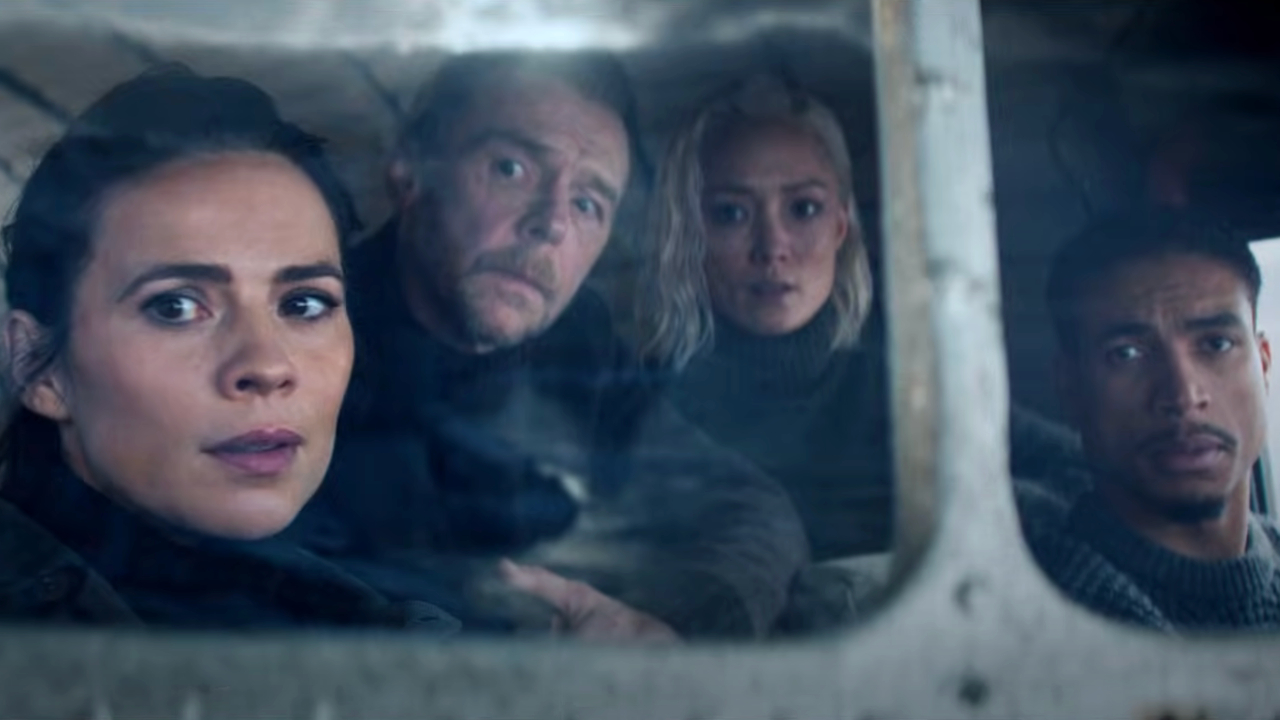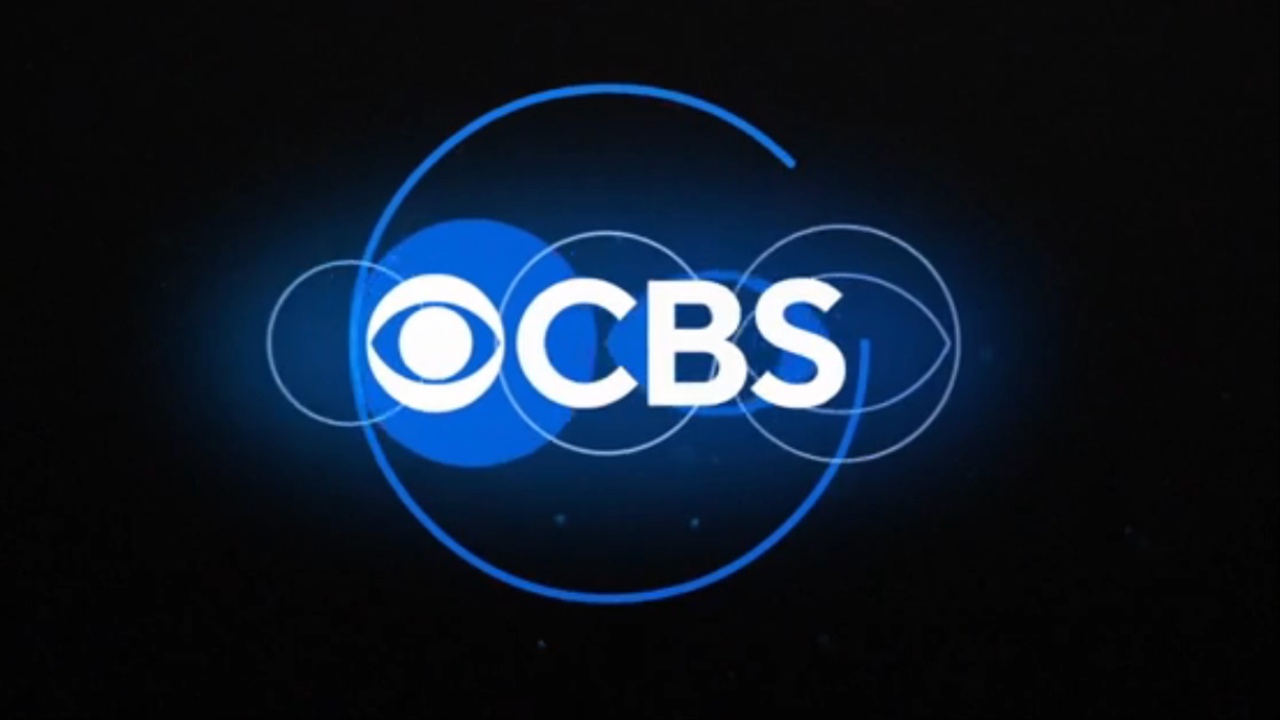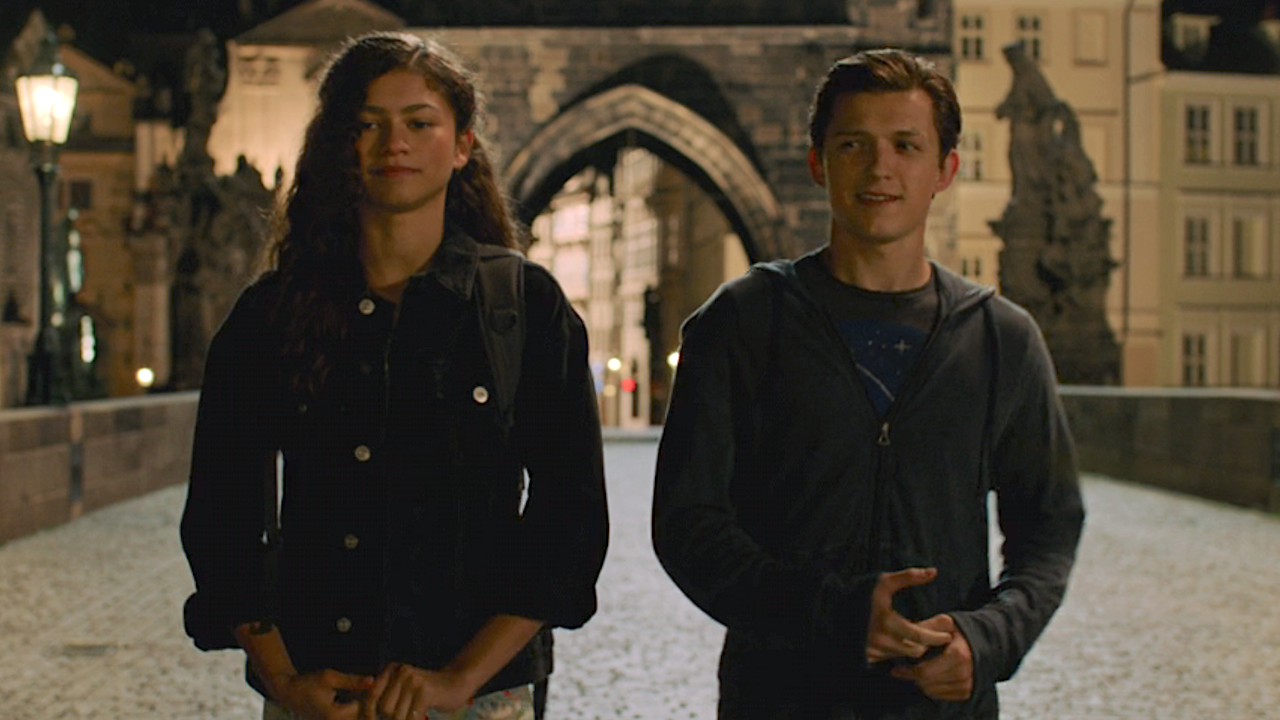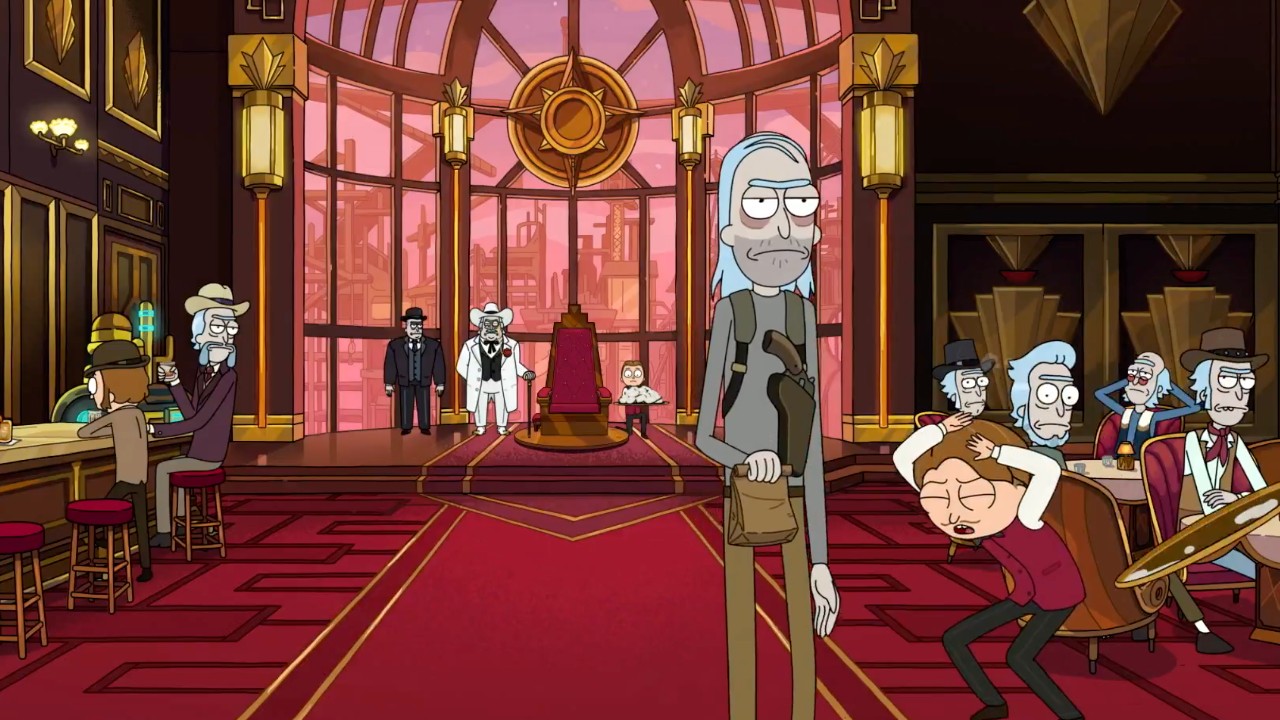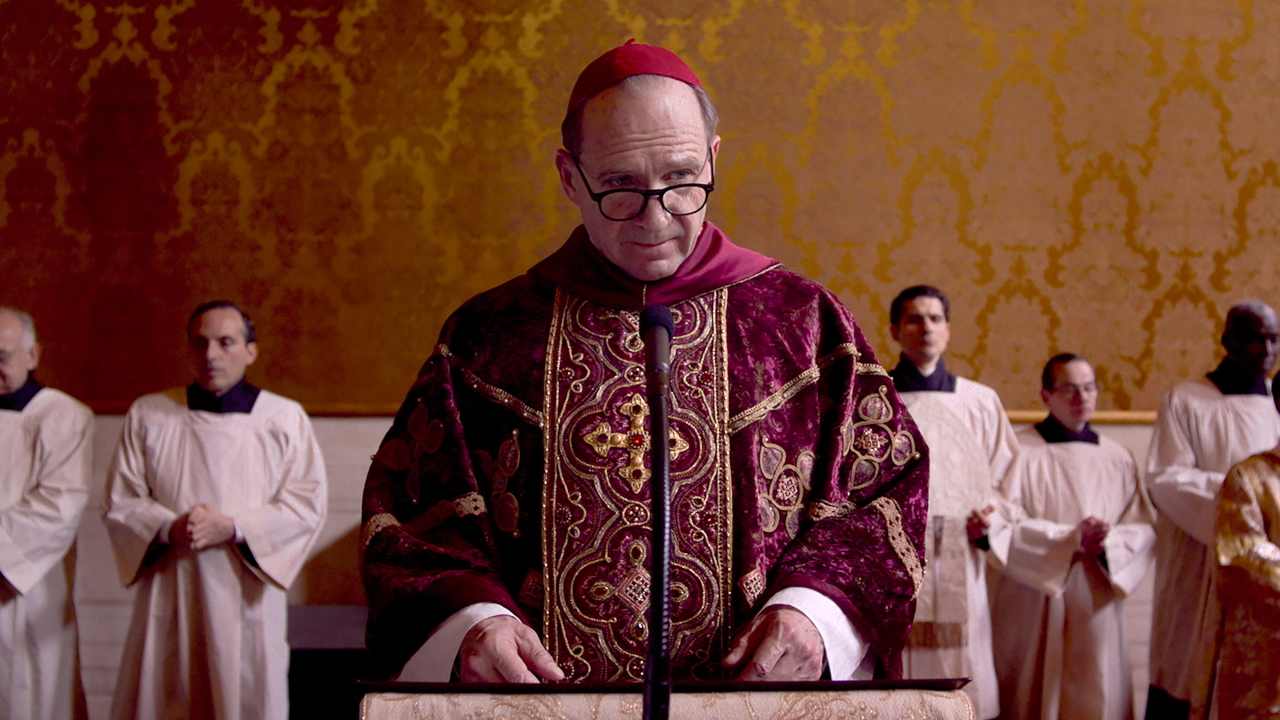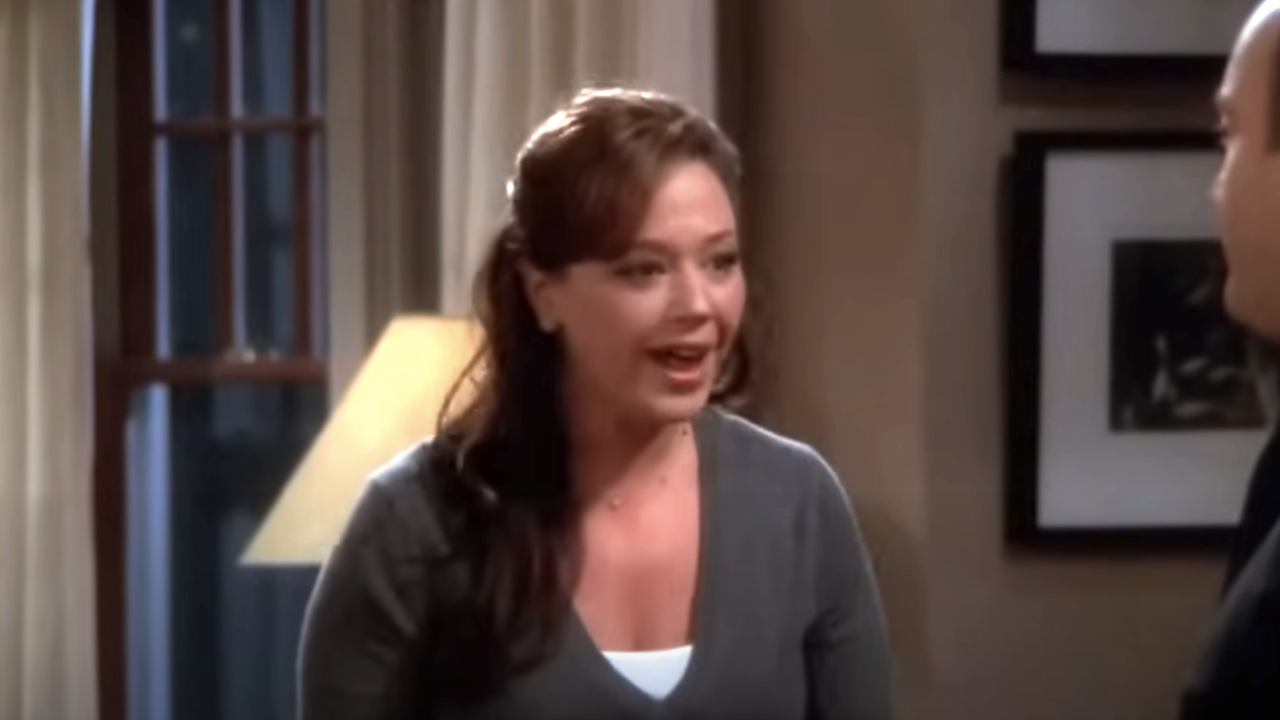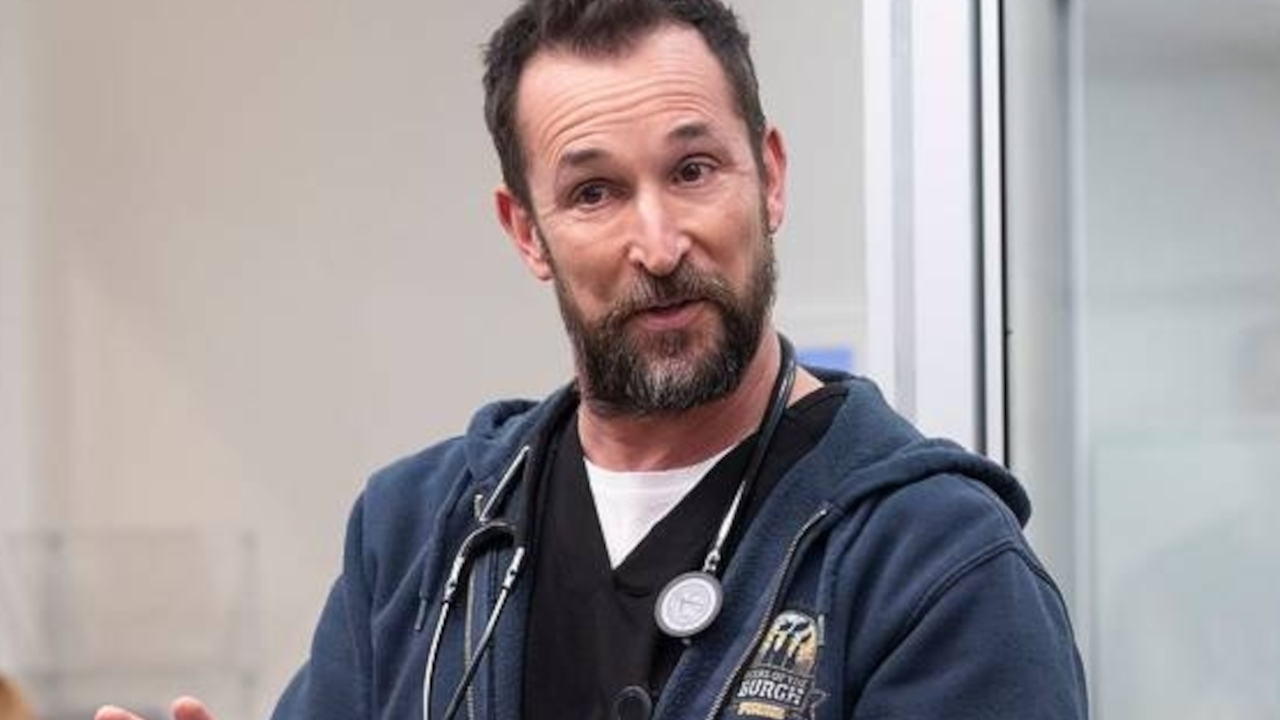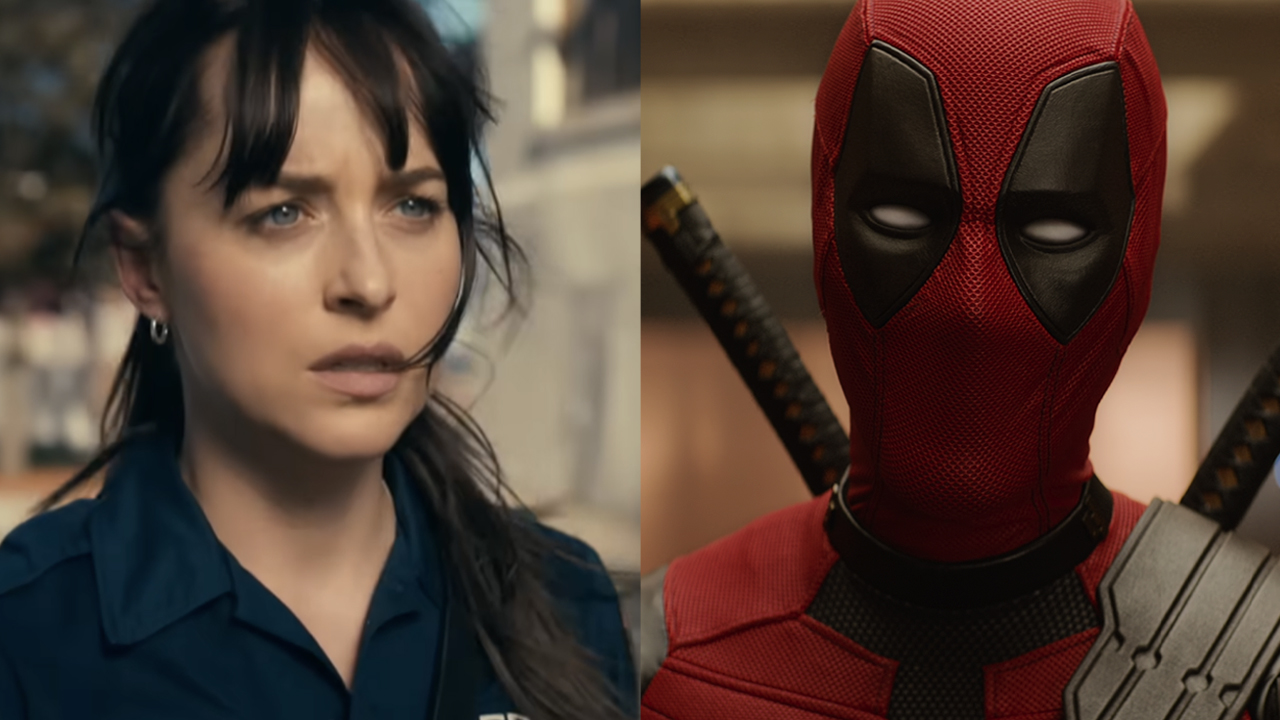5 Things Thor Does Better Than Iron Man 2

In many different ways, Marvel Studios and Paramount are trying to make Thor this year's Iron Man 2. Released in the exact same first-weekend-of-May slot that hosted both Iron Man movies, boasting a strong handful of references to Tony Stark himself and picking up more of the Avengers world-building that started in last year's sequel, Thor is the next link in what Marvel hopes will be a long, complicated chain of blockbuster superhero stories. Of course, that means Thor faces many of the same challenges as Iron Man 2, not just in setting up the Avengers mythology, but in making audience care about yet another handsome guy with superpowers.
The wonderful thing about Thor isn't just that it stands on its own as a fun film, isn't just that it does the nascent Marvel Studios proud, but that it's in many ways better than Iron Man 2, the sequel that didn't hit any of the heights of its predecessor (a movie that, it should be noted, is actually better than Thor). With this new film from Kenneth Branagh Marvel seems to be fixing any number of the mistakes they made with Iron Man 2, from making the Avengers mythology fit well into the story to creating characters who are actually invested in what's happening around them. If you too have a bad taste in your mouth left over from Iron Man 2, check out my list of the five things Thor does better; it'll give you hope that, as I wrote in my review, there's life in the superhero movie genre after all.
Fair warning: there are mild spoilers for Thor to come, but nothing very specific and nothing that should ruin your viewing experience.
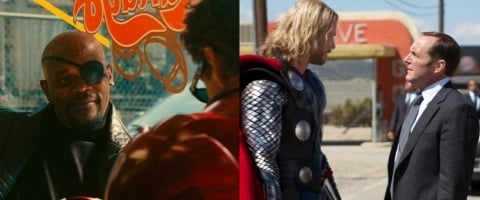
Incorporating S.H.I.E.L.D., Agent Coulson, and The Avengers into the main plot
How they did it in Iron Man 2: As the first Marvel film to start setting the stage for The Avengers, Iron Man 2 was weighed down with a subplot that explained Nick Fury, S.H.I.EL.D., Agent Coulson, the Avengers Initiative, Black Widow and all that other nerdy shit you probably could have just had your comic book-loving friend explain to you in the parking lot after the movie. It might not have felt so burdensome had it been incorporated into the story well, but Iron Man 2 was one movie about awesome Tony Stark facing off against equally awesome tech-enabled villains, and then another about awesome Tony Stark forced to have all these meetings with Nick Fury and shoved into a group of crime fighters he had no interest in being a part of.
How Thor does it better. When Thor crash lands on Earth he and his mighty hammer are immediately targeted by Agent Coulson, in a scene from the end credits of Iron Man 2 that's nicely recreated here. S.H.I.E.L.D. agents immediately descend upon the research lab of Natalie Portman's character Jane, who has evidence of Thor's arrival from another planet, and they're guarding Mjolnir when Thor bum-rushes the whole place to steal it back. With the main action taking place back on Asgard as Loki assembles power, S.H.I.E.L.D. stands in as a nice B-plot and means for Thor and Jane to bond; it's essential to the plot, in other words, in a way that was clearly as carefully planned as Iron Man 2 was not.
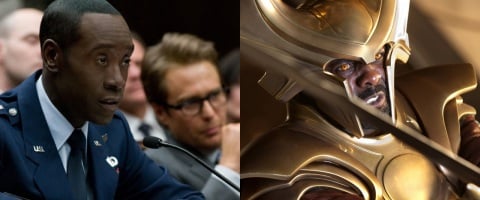
Building the world with minimal jargon and confusing detail
CINEMABLEND NEWSLETTER
Your Daily Blend of Entertainment News
How they did it in Iron Man 2. Even though Tony Stark lives in the real world and doesn't have any magical powers that have to be explained, the rules got awfully complicated in Iron Man 2 all the same. We had to figure out Stark's relationship to the government, Stark's relationship to Justin Hammer and Ivan Vanko, how all the different technology built by each managed to change hands, and of course how Tony fit in with the Avengers-- it was hard enough to remember who was pissed at Tony Stark at a given moment, and for what reason. Following that awful mantra that sequels must always be better, Iron Man 2 expanded Tony Stark's already enormous world and lost itself in the process.
How Thor does it better. There's a lot that gets very sketchily explained about the world of Asgard and how it relates to Earth, much of it in a scene in which Thor literally sketches out a map of the known universe. But knowing they had a ton of mythology to give the viewer, director Kenneth Branagh and the screenwriters instead gave us only what we needed to know, and made sure to put them in context. The Warriors Three, despite their fancy name, are just Thor's good pals; Odin and Loki are a father and son like any other; even Heimdall, the spooky guardian of Asgard with glowing golden eyes, is basically the equivalent of the responsible and likable assistant principal who's on your team. Keenly aware of how hard it might be to relate to the many myths of Asgard, Thor gives us only what we need to know-- sure, sometimes the details are a little fuzzy on how everything works, but it's better than being totally overwhelmed with jargon.
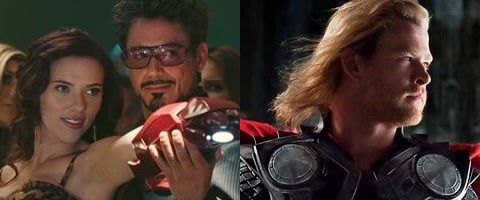
The main character has a specific goal he must reach
How they did it in Iron Man 2. Tony Stark spent all of Iron Man learning how to grow up and take responsibility for himself and for others-- then spent all of Iron Man 2 pretending he hadn't. Sinking into booze and women and self-pity thanks to the core reactor that was poisoning him from the inside, Tony Stark had all of his toys and didn't want to play with them, which meant an entire movie had to take place around a character who wasn't doing much of anything at all. It doesn't matter how entertaining the sideshow is if the central figure of your movie isn't actually doing anything to merit your attention.
How Thor does it better. Thor's goal for the entire movie is explicitly stated when Odin banished him to Earth-- he had to find humility, and only by doing that can he get his hammer back. Sure it's an obvious mission, and the movie drops the ball a little by not exactly showing Thor being all that humble in the end, but at least it's something specific that he has to do, a mission and a purpose that he has in mind even when wooing Jane or standing up against the S.H.I.E.L.D. agents getting in his way. You normally don't pat a movie on the back for nailing something as simple as character development, but it's something that Iron Man 2 bungled so badly it's a relief to see Thor not fail in the same way.
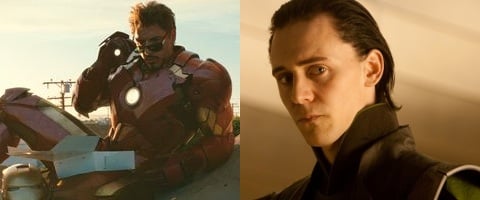
Allows its characters to have real emotions
How they did it in Iron Man 2. Much of the appeal of Tony Stark as a character is his breezy, ironic attitude toward nearly everything, whether it's the women he beds or the billionaires coming at him with expensive weaponry of their own. But in Iron Man 2 his utter unwillingness to engage in anything emotionally seemed to infect the movie itself-- a character too cool for everything became a movie that was more interested in dazzling us than in making us feel anything but awe. Tony's dealings with his dead father, his flirtation with Pepper Potts, even his strained relationship with best friend Rhodey felt like side notes, necessary additions that seemed as important to the film as a therapy session would to Tony Stark.
How Thor does it better. There's no real better way to say it: Thor has a lot of feelings. Everyone in this movie is acting not out of self-interest or desire to look cool but out of deep emotional attachment to something, whether Loki's envy of his golden-haired brother, Jane's devotion to her work or Thor's deep desire to do right by his father, even when that causes him to make mistakes. The entire key to Thor working as a character is that he's a super-strong space alien Norse god with a soul, and the film ends on a wistful note that relies on you really believing how much everything that's happened in the previous film matters to him. It does, and therefore, it matters to us too.
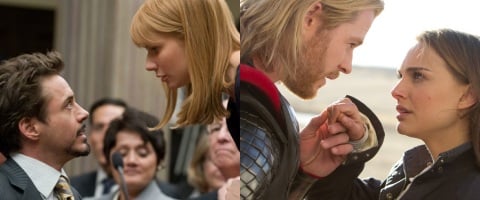
Makes it look fun to have a superhero boyfriend
How they did it in Iron Man 2. As played by Gwyneth Paltrow and Robert Downey Jr., Pepper and Tony have a real rapport, and you root for the two of them to get together despite their obvious personality differences. But Pepper's stance on her irascible superpowered suitor is the one so many other movie girlfriends have suffered with in the past-- dating a guy with powers kinda seems to suck. Either you're being put in danger by the film's villain, stuck dealing with his dual identities, or at bare minimum bearing the brunt of all the logistical complications of flying around and saving the world. Pepper Potts doesn't get it any easier, and though she clearly loves Tony on some level, she doesn't seem to like him all that much.
How Thor does it better. Jane is never exactly Thor's girlfriend in the movie-- they're too busy dealing with S.H.I.E.L.D. and finding Mjolnir and all that-- but there's a fantastic moment late in the film, when Thor picks up Jane, asks her if she wants to fly, and she says yes. Then she giggles, because you know what? Having a boyfriend who can fly is awesome. That small move not only gives Jane personality, it explains a relationship dynamic that we'll hopefully seen in future films-- a superhero god, and a mortal girlfriend who's game for anything.
Staff Writer at CinemaBlend

